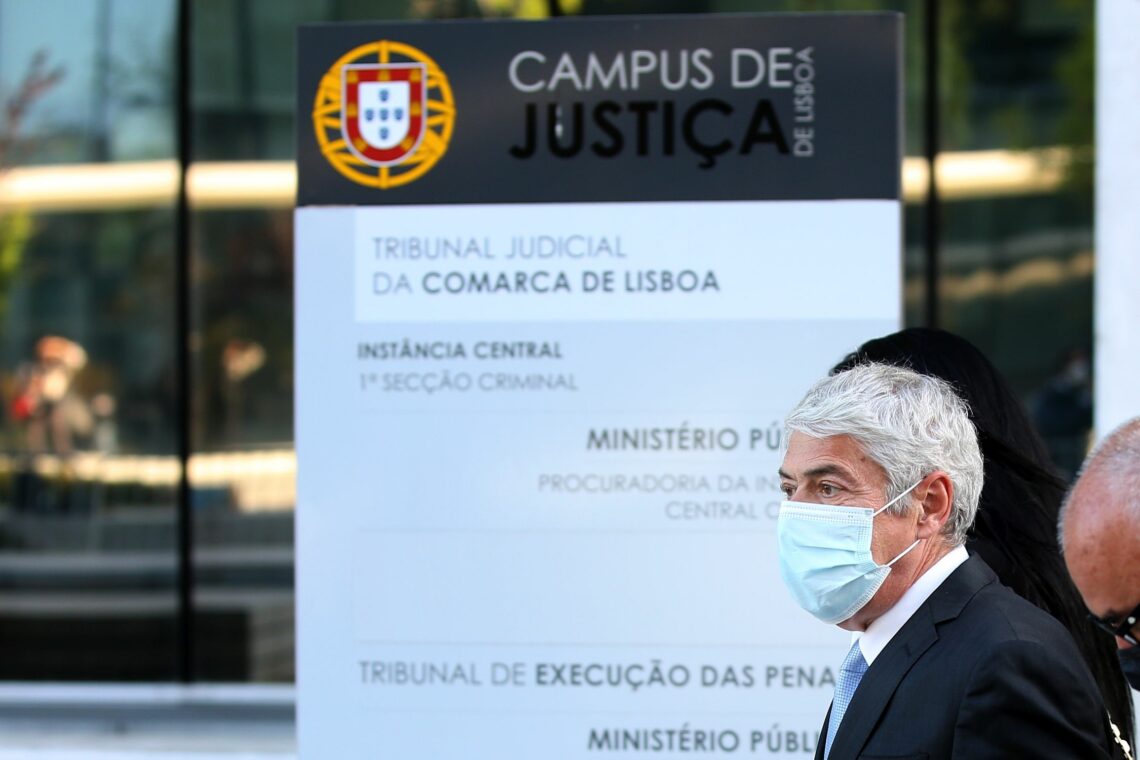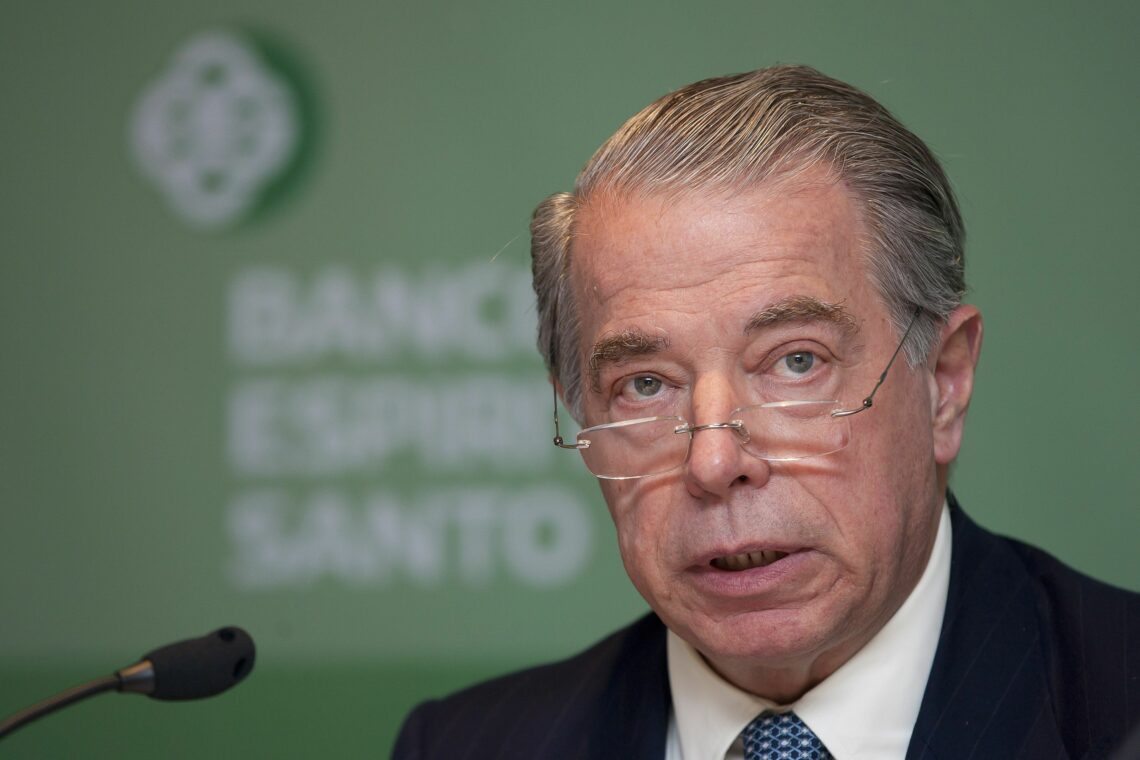Corruption and the future of democracy in Portugal
A judge’s ruling to dismiss most of the corruption charges against a former Prime Minister have gutted faith in Portugal’s judicial system. The Operation Marquis scandal has political implications that could benefit the rise of right-wing populists in Portugal.

In a nutshell
- The "Operation Marquis" case ruling has shocked the people in Portugal
- The decision to dismiss corruption charges undermines the faith in the system
- Public anger could translate into political gains for populists
Shock waves of indignation reverberated throughout Portugal in April when a judge dismissed most of the charges brought against the country’s former prime minister, Jose Socrates. The allegations were part of a wider case, dubbed “Operation Marquis” (“Operacao Marques” in Portuguese). The judge cited procedural errors and statutes of limitations for his decision. The former prime minister was accused of 31 crimes, but the judge decided he would stand trial for only six: three for money laundering and three for forgery. All the corruption and tax fraud charges were dropped. The judge went as far as to imply the accusations were specious, calling the prosecution’s case “not rigorous,” “fanciful,” “inconsistent,” and even “sheer speculation.”
According to Mr. Socrates’s lawyers, the judge’s decision was courageous. In the eyes of many civic organizations and politicians, it was outrageous. The official was immediately and widely condemned. A petition to remove him from the judiciary garnered 200,000 signatures. All this is a dangerous signal about the current state of democracy and rule of law in Portugal.
Shock to the system
The public outcry has hurt the standing of the ruling socialist party, of which Mr. Socrates had served as secretary-general from 2005 to 2011. He had been one of the party’s most charismatic leaders in recent years. Prime Minister Antonio Costa and his government have kept tight-lipped about the affair since it began and have tried to distance the Socialist Party from the case. However, the decision had such a significant impact that some of the faction’s better-known figures have come forward to voice their unease with Mr. Socrates’ conduct while he was in government.
As critics say, in Portugal, ‘only the poor and the unknown go to jail’.
Mr. Socrates held numerous positions in national public service starting in 1995, including environment minister and deputy prime minister. During this period, he was the subject of several corruption-related controversies. The judge’s Operation Marquis decision went much farther than the partial exoneration of the former prime minister: of the 189 crimes for which the prosecution brought indictments, he held that only 17 should be tried, while only five of the original 28 defendants should stand trial. According to this preliminary ruling, none of them would face corruption charges. The public prosecutor immediately announced he would appeal the decision.
Though shocking, the decision was not entirely a surprise. Several recent corruption cases have failed to bring perpetrators to justice. As critics say, in Portugal, “only the poor and the unknown go to jail.” Politicians and businesspeople who can afford good lawyers remain free, using the appeals process to drag out cases until judicial time limits kick in. The problem is structural; the cumbersome legal system and legislation make corruption exceedingly difficult to prove.
Power play
Mr. Socrates is at the heart of a scandal that shook Portugal to its core, exposing a vast network of deep-rooted corruption entwining politics, the economy and the judiciary. Trusted companies and public figures were caught up in the affair. Apart from a former prime minister, the accused include former ministers and top executives of some of the country’s largest and most important firms.
During his tenure, Mr. Socrates was backed by an absolute majority in parliament and steadily consolidated power. He tried to exert influence over the media, either directly or through businesspeople whom he rewarded with political favors. He and his finance minister, needing to keep public debt manageable, also tried to gain control over elements of the financial sector.

To that end, Mr. Socrates allegedly forged an alliance with Ricardo Salgado, then CEO of Banco Espirito Santo (BES), one of Portugal’s largest and most important banks. Mr. Salgado was a key player in Portugal’s financial system and one of its most powerful businesspeople. A partnership with him would have given Mr. Socrates tremendous political leverage.
The state-owned bank, Caixa Geral de Depositos (CGD), was also allegedly used by Prime Minister Socrates to manipulate the financial system. He initially appointed independent academic Luis Campos e Cunha as finance minister, only to dismiss him 130 days later due to irreconcilable differences. Changes in CGD’s board are believed to have been at the heart of the disagreement.
Web of corruption
The next man in line at the finance ministry would be Fernando Teixeira dos Santos, who, along with Mr. Socrates himself, was another former member of Antonio Guterres’s government (1995-2002). One of his first measures was to replace CGD’s leadership and board: Carlos Santos Ferreira, who was close to the Socialist Party, assumed the presidency of the bank. Armando Vara, another former official under Prime Minister Guterres – and a close friend of Prime Minister Socrates – was made an administrator.
Mr. Vara has amassed a vast record of financial and administrative misconduct. He was even convicted of trafficking influence in relation to another corruption case, dubbed “Face Oculta.” Currently serving five years in prison, he is among the Operation Marquis defendants who will likely not face trial for corruption charges.
The web of corruption led to the collapse of some of the biggest companies in Portugal.
The Banco Comercial Portugues, BCP (the Portuguese Commercial Bank) was another target of the Socrates government. Its head, Jardim Goncalves, would not allow himself to be co-opted, so Prime Minister Socrates engineered a takeover of the bank, with the help of CGD and BES and another famous businessman, Joe Berardo. Mr. Berardo went deep into debt with CGD, bypassing the bank’s own rules against imprudent lending – likely with help from people in powerful places – to buy up shares of BCP. In the end, Mr. Goncalves was forced out of the bank’s management.
Along with the financial scandals, Mr. Socrates’ tenure was marred by suspicions of complicity between politicians, senior magistrates and judges to protect the most powerful and influential among them.
Operation Marquis
Operation Marquis became a mammoth undertaking, encompassing several investigations surrounding economic and financial crimes. It produced more than 140 volumes of documentation, exceeding 56,000 pages, along with thousands of hours of interrogation. There are dozens of defendants, as well as multiple appeals and legal issues. The process was complicated by the alleged crimes’ connection with other corruption scandals, including Face Oculta, among others. That the investigation ensnared a former prime minister, not to mention some of the most important firms in the country, added to the complexity.
Overall, Mr. Socrates is believed to have illicitly received some 34 million euros, the bulk of it (more than 25 million euros) from Mr. Salgado. The web of money laundering, exchange of political favors and illicit business dealings contributed to the collapse of some of Portugal’s biggest companies, including BES and Portugal Telecom (PT). PT was the country’s biggest telecommunications provider and had an estimated net worth of nearly 7 billion euros. It was sold in 2015 for 5.789 billion euros. Some of the company’s top leaders are on the list of Operation Marquis defendants who may not be tried.
Populist rise
It has been seven years since Mr. Socrates was first detained, and there is no certainty he will ever stand trial for corruption. Even if the judge’s decision is revoked by a higher court, the process is likely to drag on for several more years. The Portuguese people have lost faith in their country’s judicial system. They are angry and frustrated. Politically, these feelings will manifest themselves in lower voter turnout and populist parties gaining momentum, since the traditional parties are seen as protecting the status quo.
Politically, this anger and frustration will manifest in lower voter turnout and populist parties gaining momentum.
These trends can already be seen. In the January 2021 presidential election, turnout was less than 40 percent. The center-right President Marcelo Rebelo was reelected with an absolute majority of the vote. Meanwhile, the popularity of the new right-wing Chega (Enough) party and its leader, Andre Ventura, is on the rise. Against many commentators’ expectations, Mr. Ventura nearly came in second in the presidential election, gaining 11.9 percent of the vote. Ana Gomes, a left-wing candidate, finished just ahead of him, receiving 13 percent. It is worth pointing out that all of this occurred before the controversial judicial ruling was made.
Outlook
The decision, however, will likely put even more wind in Chega’s sails. The party – Portugal’s version of the rightist movements sweeping Europe – has upended politics in the country and is gaining ground. In the October 2019 legislative elections, Chega garnered just 1.3 percent support, almost 10 times less than what Mr. Ventura received in the January 2021 presidential poll. On a scene dominated by political correctness, the charismatic and controversial politician has taken on the mantle of protest candidate challenging a system increasingly perceived as rotten, weak and corrupt.
Municipal elections in September or October 2021 will be the next big test for Portugal’s political system. In neighboring Spain, the center-right People’s Party and far-right Vox party may form a governing coalition in Madrid after recent elections there. It could be a successful formula for the right side of the political spectrum in Portugal as well.








